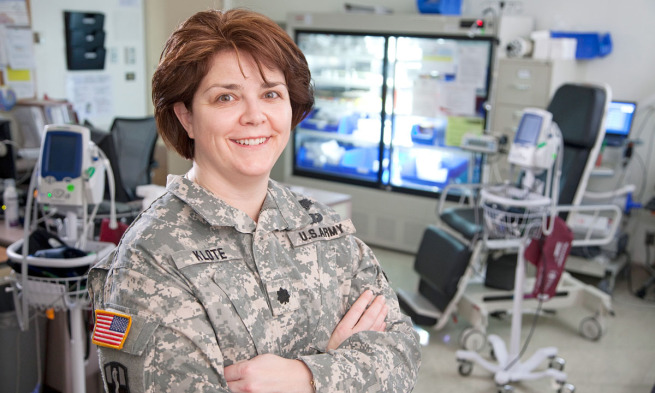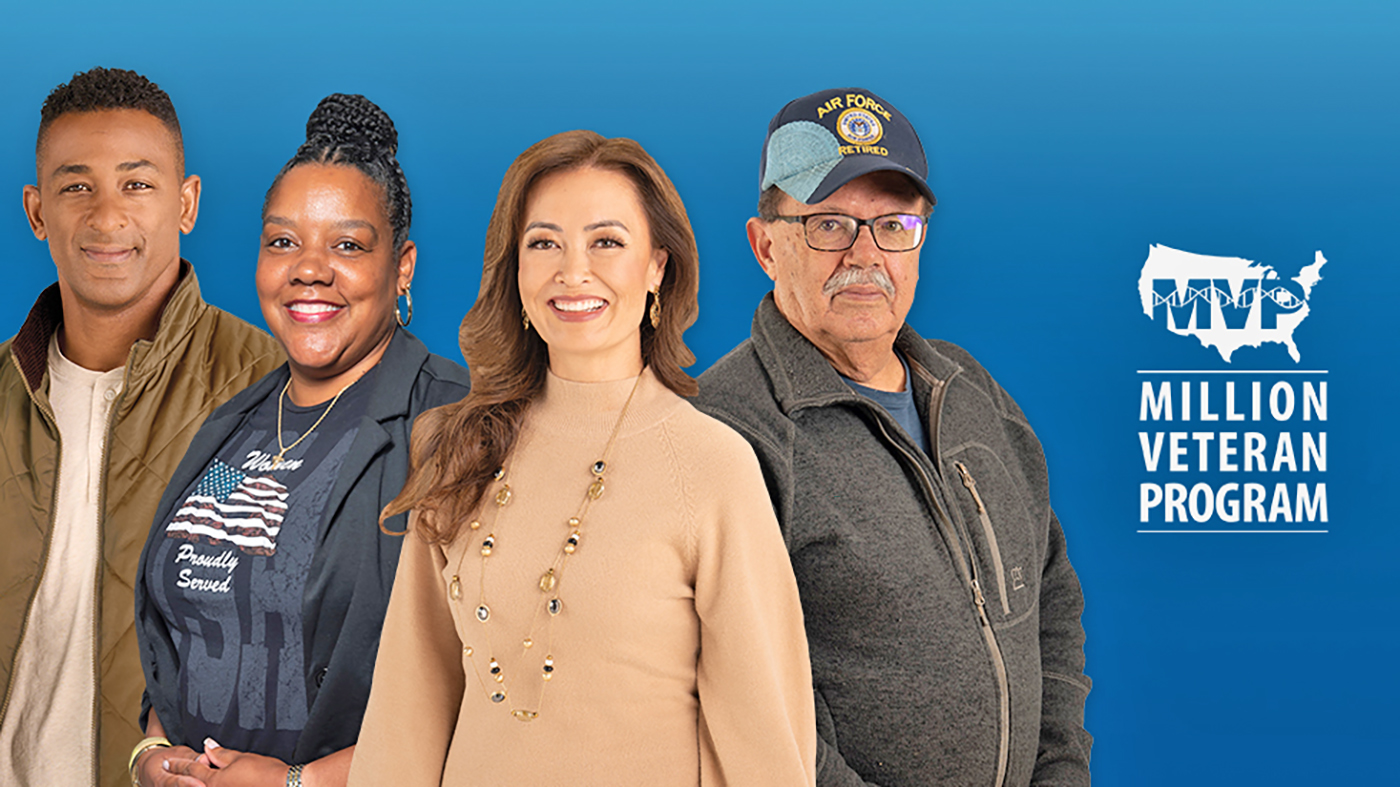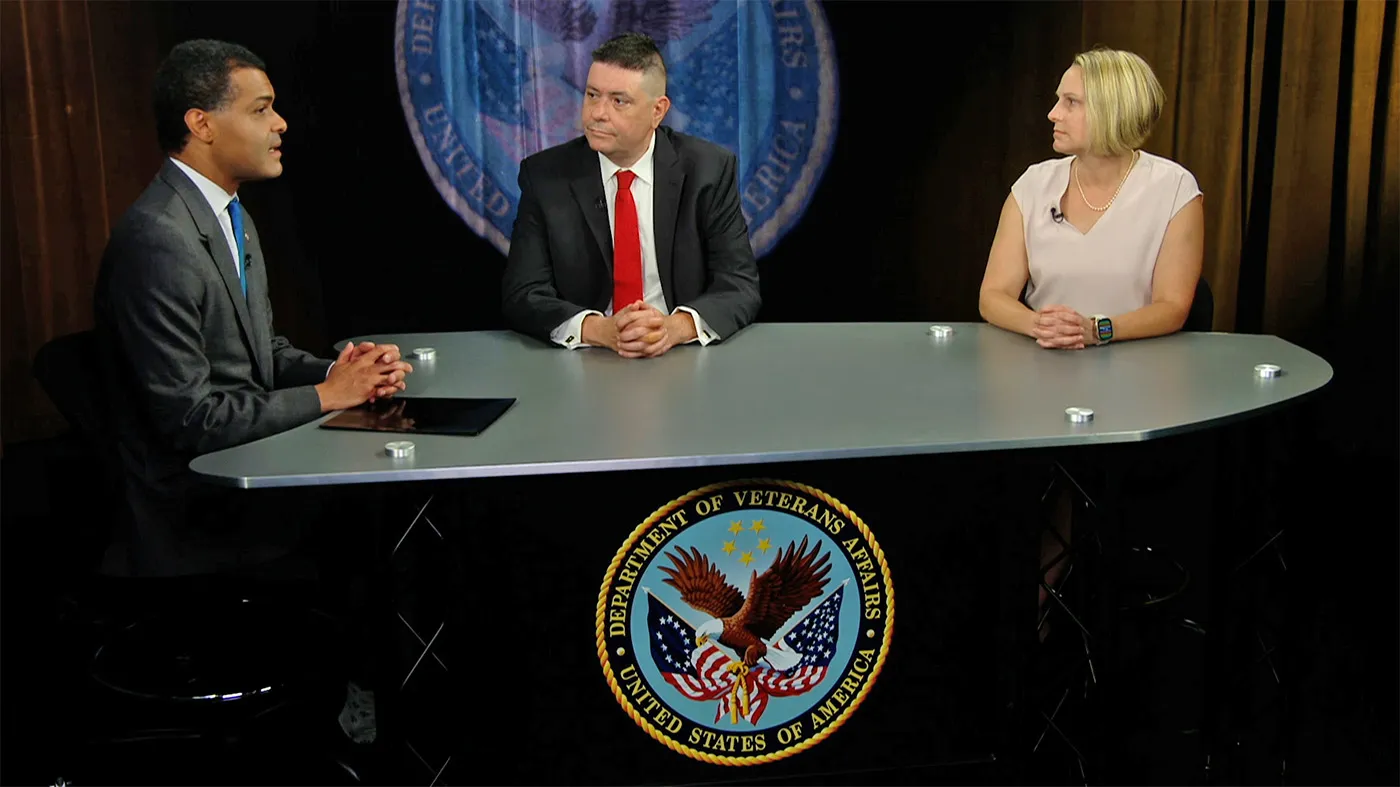The following feature is part of the series, VA Researchers Who Served. These profiles bring to life the critical work that VA researchers are doing for the Veteran community and highlight and recognize their military service, while including a touch of human interest and an inspirational tone. The series honors those who once served and who continue to serve through their VA research endeavors.
Dr. Mary (Molly) Klote, an Army Veteran, is the director of the Office of Research Protections, Policy, and Education in VA’s Office of Research and Development. Previously, as an active-duty Army colonel with 30 years of service, she oversaw all human research policy, education, and compliance for the Army through the office of the Army surgeon general. She has published 15 peer-reviewed research papers that involve her expertise as an internist and allergist-immunologist. Her military honors include the Legion of Merit, the Defense Meritorious Service Medal, the Korea Defense Service Medal, the Iraq Campaign Medal, the Expert Field Medical Badge, and the Army Staff Identification Badge.
What motivated you to join the military?
I am the third generation in my family to join the Army. I grew up as an Army brat and could not have imagined another life. My dad was so happy in his career. His enormous love for the Army inspired me to join.
What inspired your research career?
If I hadn’t been a doctor, I likely would have been a detective. I like solving problems and getting to the answers. Beyond caring for patients, research is an opportunity in medicine to uncover and discover.

Dr. Molly Klote served for three decades in the Army and now directs VA’s Office of Research Protections, Policy, and Education.
Did you have mentors who inspired you in life, the military, or your research career?
There are too many medical professionals and Army officers who inspired me, including my father, to name them all. My parents come from large Irish Catholic families. My aunts, uncles, and cousins – many of whom served – had a major impact on my upbringing. I am one of seven girls in my family, and each of my sisters has impacted my life. My Catholic faith plays a significant role in my life. I am a member of the Order of Malta, a Catholic service organization that is dedicated to caring for the sick and the poor. My husband and children also help to ground me in the things that are most important.
When and where did you serve in the military? Describe your military experience.
I began my Army service through an ROTC scholarship at James Madison University in Virginia. I majored in computer information systems and earned a regular Army commission in the Military Intelligence Corps upon graduation, then served as an Army intelligence officer for five years. It was a wonderful time to mature, develop leadership skills, and be given responsibility at a young age. I served for 16 months in South Korea, nine months in Honduras, one year at Fort Meade in Maryland, and one year as a detachment commander at the Rosman Research Station in North Carolina.
Before my military intelligence time ended, I decided to take night classes to complete the necessary requirements to apply to medical school. I was accepted to the Uniformed Services University and graduated with a medical degree and the Esprit de Corps award, which is recognition for a spirit of teamwork that is voted on by the class. I then trained in internal medicine, allergy immunology, and clinical laboratory immunology at Water Reed Army Medical Center.
What kinds of research have you been involved in? How has it impacted Veterans?
My research was mainly focused on vaccines and immunodeficiency. I conducted studies on the smallpox and influenza vaccines and on the incidence of infections after kidney transplantation, among other research projects. Today, I no longer have my own research projects. The focus of the last eight years of my Army career had been to help streamline the research regulatory process to make research easier for others. That is my goal for VA research, as well.
More information
Click here to read the full story.
Click here to learn more about VA research.
Topics in this story
More Stories
Diverse representation of women in health care research allows MVP to make discoveries for women’s health
Join the Million Veteran Program online. You will have the option to receive an at-home blood sample collection kit in the mail.
VHA's new podcast series, New Horizons in Health, features a candid discussion of psychedelic assisted therapies for Veterans experiencing mental health conditions.






